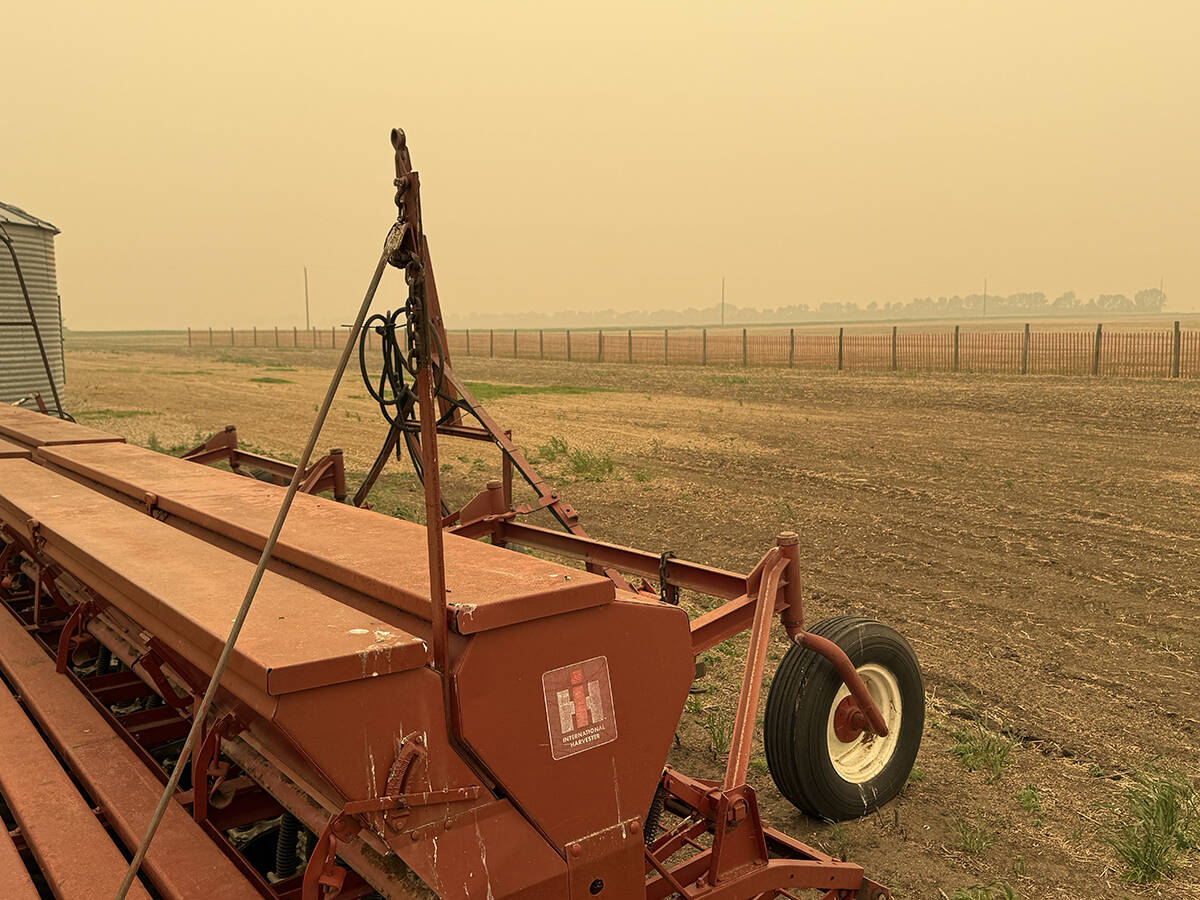Inspection of imported food by the Canadian Food Inspection Agency is flawed and haphazard and too dependent on foreign inspectors, says a report by the CFIA auditor.
“In my opinion, CFIA management of imported food safety has deficiencies that represent multiple areas of risk exposure requiring significant improvements related to the governance, control and risk management processes,” agency chief audit executive Peter Everson said in a report released late last week.
Government critics including opposition MPs and the union representing CFIA inspectors pounced on the latest bad news for the CFIA.
Read Also

Wildfires have unexpected upside this year
One farmer feels smoke from nearby wildfires shrouded the July skies and protected his crop from the sun’s burning rays, resulting in more seeds per pod and more pods per plant.
“Canada’s food safety inspection system is again under suspicion,” Liberal agriculture critic Wayne Easter said in the House of Commons Sept. 27.
He accused agriculture minister Gerry Ritz of failing to take food safety seriously.
“Why does the minister not enforce the same standards on foreign production as he expects Canadian producers to meet?”
Halifax New Democrat MP Megan Leslie demanded that the government give CFIA more resources to do a better job.
“While imports are skyrocketing, our food inspection agency is failing to keep Canadian families safe.”
The government’s response was that the audit covered, the period ending March 31, 2008 and since then, money has been sent to the agency, new inspectors have been hired and international observers have praised the CFIA.
“The (Organization for Economic Co-operation and Development) ranks the Canadian food safety system as superior,” Ritz said in the House of Commons Sept. 27. “Last year, we increased the CFIA budget by 13 percent. Since the Conservatives have formed government, it has put 538 new inspectors on the front line.”
Bob Kingston, president of the Public Service Alliance of Canada agriculture union, said the claim of more than 500 new inspectors is a fabrication, counting new hiring but not new front line inspectors.
The audit is “a sweeping condemnation, which essentially found that little is being done to control the safety of imported foods,” he said. “This is another symptom of a critically under-resourced food safety system.”
The union has been campaigning for years for more funding and inspectors.
The audit on under-inspection of imported foods comes at a time when farm groups and rural MPs increasingly complain that Canadian farmers are at a disadvantage because foreign farmers shipping to Canada often do not have to meet the same production and input standards as Canadian farmers.
When it resumes meetings next month, the Commons agriculture committee, which has flagged the imported food issue, likely will make the CFIA audit part of its agenda.
The auditor said there is no agency-wide strategy for dealing with assessments of the safety of imported foods.
“Imported food safety risks should be identified and assessed on an agency-wide basis and programs planned and delivered in a manner that is risk-based and supports the achievement of CFIA’s imported food safety objectives and expected outcomes,” he wrote in the report.
Elsewhere, he recommended that the agency make enough resources available to monitor food imports. Everson noted that in the decade to 2006, the value of food imports rose 45 percent to $21.8 billion and the number of countries of origin rose to 193 in 2005 from 143 in 1990.
“Workloads associated with imported food inspections and control activities should be assessed to ensure appropriate allocation of resources to address risks and changing priorities within food programs,” he wrote.














